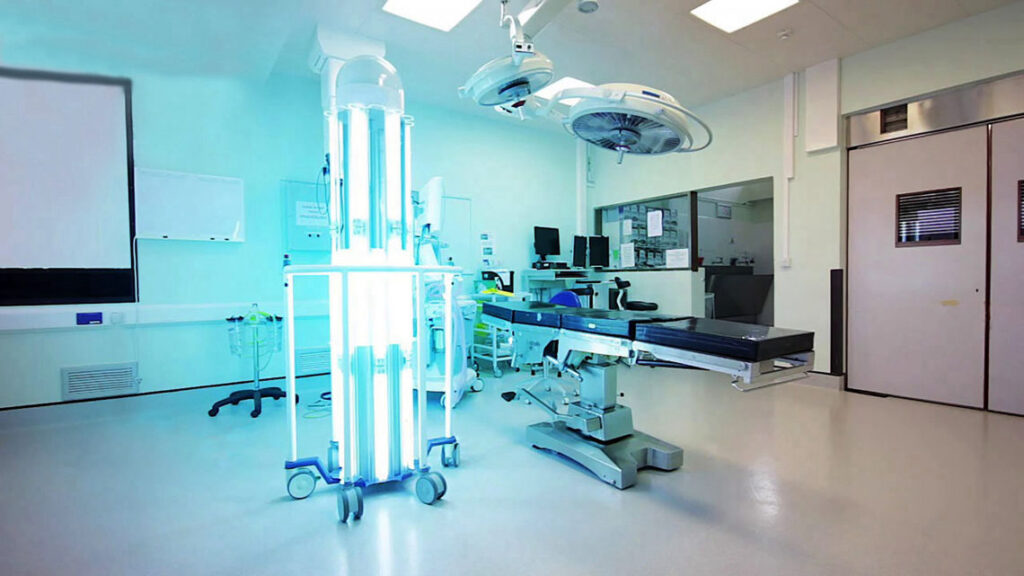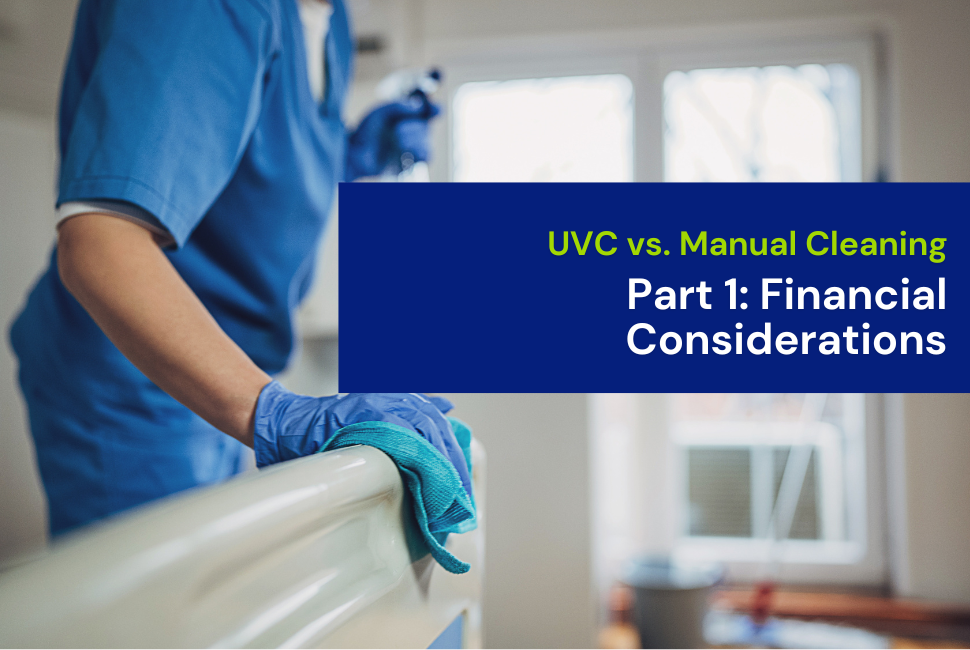Yes UVC light can kill coronavirus, however there are many types of UVC products and not all are effective. Find out more…
Yes, UVC light can kill coronavirus. This is because UVC light is a powerful tool for the disinfection of surfaces and the air of an extremely broad range of bacteria and viruses, of which coronaviruses, including COVID-19, are just a few.
This is because UVC is extremely destructive to viruses and bacteria, disrupting their DNA and leaving them unable to replicate. It is also so effective for this purpose that the types of virus and bacteria that UVC disinfection can kill is theoretically limitless, and varies depending only on the duration and intensity of the UVC light used.
UVC light is highly effective at destroying COVID-19 specifically and this was confirmed conclusively in a recent independent study by Boston University in partnership with UVC emitter supplier Signify (in the interests of disclosure, Signify supply Finsen Tech’s emitters).

Can other types of UV light kill coronavirus?
There are two other types of UV light – UVA and UVB. We receive both of those in sunlight. However, they are much less useful than UVC for disinfection purposes.
This is for two reasons. Firstly, because they are much less effective at inactivating coronaviruses than UVC.
Secondly, because they pose a greater risk to human health if the disinfection equipment is misused or an accident occurs. This is because a significant and/or prolonged exposure to UVA and UVB can cause severe skin damage and, in extreme cases, skin cancer, in addition to damage to eyes. While UVC poses risks if equipment is mishandled, the risks with UVA and UVB are greater.
Is UVC disinfection a newly developed technology?
No. UVC disinfection has been in use for some time, and has previously been successfully deployed to inactivate other coronaviruses prior to COVID-19, such as SARS-CoV and MERS-CoV, in addition to H1N1.
However, the equipment used to effect UVC disinfection has continued to improve and develop since then, both in terms of efficacy and efficiency, and in terms of safety.
Why isn’t UVC light widely used everywhere that disinfection is required?
Pre-pandemic, it was usually medical facilities which had the greatest need for high efficiency, high efficacy disinfection against bacteria and viruses. In addition, UVC disinfection requires specialised equipment which must be used in a safe manner by trained staff. For these reasons among others, UVC disinfection has not yet been deployed as widely as it could be in non-clinical settings.
The most advanced, modern equipment, such as our own THOR UVC®, is now simple to operate following basic training, and the ongoing pandemic means the requirement for disinfection in non-medical settings is now much greater. As a result adoption of the technology is growing rapidly.
Can I use UVC light to kill coronavirus at home?
In theory, yes. But in practice, UVC disinfection is a powerful tool which requires specialised equipment, not generally designed for use within the home and often outside the price range of what a private home user might be willing to pay (although with modern, high quality UVC disinfection equipment, it would be as safe to use it there in a professional setting provided the user were given basic training).

However, beware products marketed as UVC disinfectants for the home. These often take the form of lamps or wands, and are frequently available at a very low cost – as little as $50 to $100.
The best case scenario with one of these products is that it will be completely ineffective, outputting an insufficiently powerful dose of UV light to generate effective disinfection.
It will be much more dangerous if they do output a significant quantity of UV light – be it UVC, UVA or UVB. All three can be harmful to human and animal skin and eyes. And unlike properly engineered, specialist UVC disinfection equipment, these cheap products are not designed to enable safe usage via remote control and do not employ failsafe’s to help prevent accidents. They may not even warn of the dangers of UVC exposure in their documentation.
It will likely be safer to use traditional cleaning measures within the home, where the risk of widespread COVID-19 contamination of surfaces and the air tends to be less than in hospitality, municipal or medical settings.



